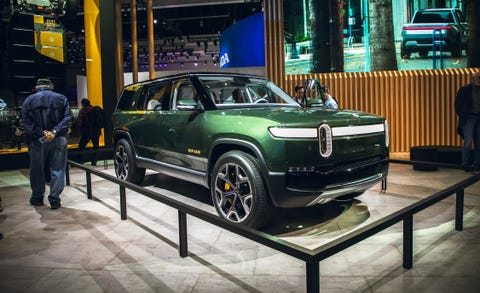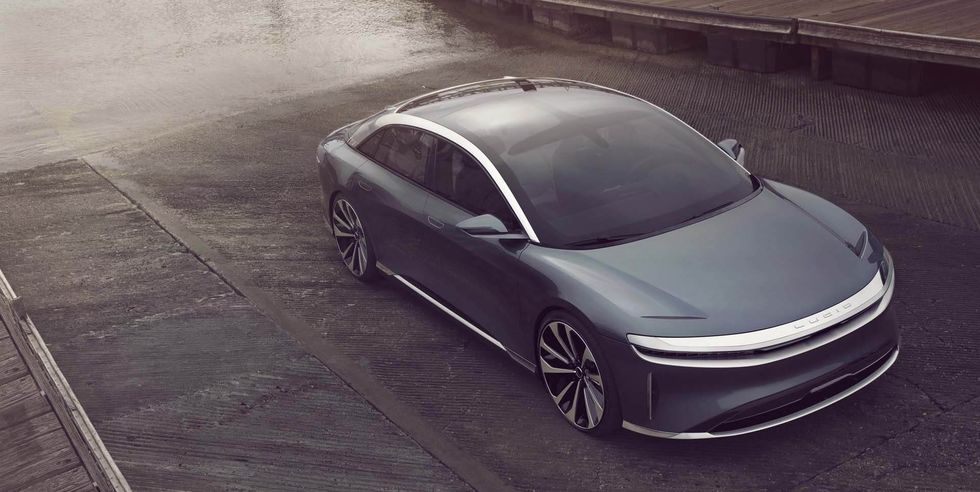Read The Full Article On: Caranddriver
Fisker, Lucid, Rivian, and others: What’s the latest with the big plans and announcements of upcoming models, now that we’re in a global crisis?
At a time when traditional automakers with decades of manufacturing and selling vehicles under their belts are announcing that they’re extending their shutdown of operations, EV startups are in even more precarious position. Most don’t have the capital to sit idle for weeks, possibly months at a time. This is especially true for those that are about to unveil vehicles or start production.
Even while operating in stealth mode, companies need to hit deadlines to appease investors that have taken a gamble on a startup’s EV dreams. A shutdown even in some of an organization’s operations could have a ripple effect on the rest of the team. The same is true for production. It’s why, when Ford announced that it would consider restarting productionat some of its plants, it also shared details on additional plant openings that would support manufacturing.
What helps some of the new companies have that enables them to keep working is being born out of the startup world, where teams are already working remotely and some of the work is still in the development phase.

2021 RIVIAN R1. MICHAEL SIMARICAR AND DRIVER
For the startup that started the trend of electric pickups, Michigan-based Rivian has postponed summer events but told Car and Driver that most of its staff is able to work from home. “Of course we miss being together. Our locations. R&D, project planning, design team work, even most engineering . . . all those processes are going fine. Because we’re spread out over several locations, it’s already an established company norm to have multiple Zoom meetings a day,” said Rivian spokesperson Amy Mast.
The company noted that hourly employees that work specifically on infrastructure items and can’t work remotely will be paid their full salary while shelter-in-place orders are in effect. CARS AND TRUCKS WE’LL BE WAITING FOREvery Electric Pickup Truck on the HorizonEvery Electric Vehicle Coming in the Next 2 Years
On the West Coast, Lucid has hit similar delays for events. Its Lucid Airproduction vehicle was set to have its global debut at the New York auto show in April. Now that the event has been rescheduled, the company is working on rescheduling that reveal. In the meantime, CEO Peter Rawlinson told Car and Driver that the company’s production facility in Casa Grande, Arizona, “continues apace and we fully expect it to be completed in 2020 as originally planned. In addition, Lucid’s supply chain remains totally committed and in a state of readiness for start of production of the Lucid Air. For the most part, tooling and machinery for the Lucid factory in Arizona were well underway before the current crisis.”
Like Rivian, Lucid’s team can work remotely and still complete scheduled tasks. “This includes a range of disciplines from CAD design to CAE analysis and software coding,” Rawlinson said. The company has stopped the building of beta vehicles at its Silicon Valley headquarters but it is looking into options to test and validate the vehicles it’s already built.
Meanwhile, startups Faraday and Fisker have posted about flattening the curve and social distancing on social media, but neither has shared details about how they are weathering the pandemic. Lordstown recently hung a large banner on its former GM plant in Lordstown, Ohio, but has not commented directly on the pandemic. We’ve reached out to all three companies and have not heard back.
Faraday has been on a roller coaster of funding as it attempts to complete the transformation of its Hanford, California, factory to vehicle manufacturing. Lordstown is hoping to get a $200 million loan from the federal government’s Advanced Technology Vehicles Manufacturing Loan Program so it can start production on its pickups sooner rather than later. With the government working on stimulus plans for established businesses and those affected by the shelter-in-place orders, it might be a while before that happens.
Fisker showed off its Ocean electric SUV in January, and the current schedule is to deliver some vehicles in 2021, but most in 2022. With that long a lead time, it might not be feeling the full effects of the pandemic.
How these startups will weather the current situation is unknown. But then, most companies are navigating into the unknown. For both startups and established entities, plans are being tossed into the wind as no one is certain when things will get back to normal or at least a new normal. Then there’s the possibility that there just might be fewer companies following in Tesla’s footsteps on the other side of this pandemic.

